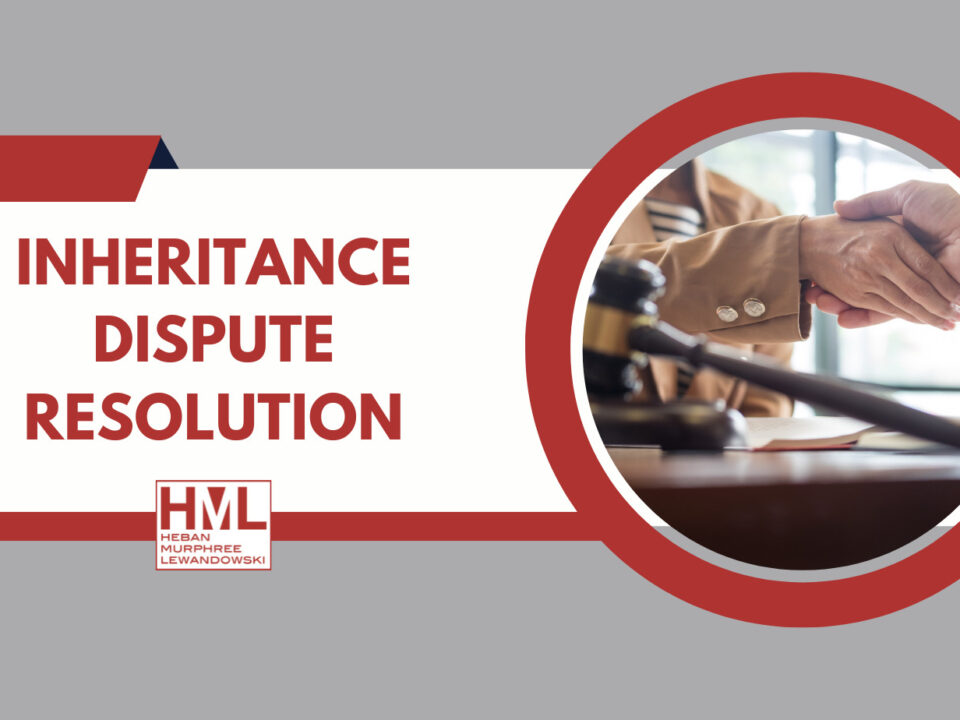- EXPERIENCED LAW FIRM IN TOLEDO, OH
- (419) 662-3100
How To Protect Children’s Inheritance From Divorce

Eminent Domain in Ohio
April 9, 2022
What To Do When A Family Member Dies
April 22, 2022Protecting Inheritances
Divorce is never an easy topic. It can get even more complicated when it becomes part of estate planning. And if that wasn’t already challenging enough, the presence of children can complicate matters further.
Even if offspring are adults when the divorce occurs, there can be some raw feelings. But what can be particularly troubling is when a child’s inheritance is at risk of being lost to an ex-spouse.
As difficult as it is to consider while still happily married, how to protect your children’s inheritance in case of divorce should be a part of your overall estate planning.
How Assets Get Divided In a Divorce
It’s essential to understand how property is divided in divorce so that you can figure out how to keep your child’s inheritance from being split up. Because Ohio is an “equitable distribution” state, a divorce court will try, with a few exceptions, to divide all of the money and other assets the couple had during their marriage. One of those exceptions involves any property that one of the people inherited during the marriage.
It seems that because inherited property isn’t subject to division in a divorce, there shouldn’t be any issues. But, unfortunately, it’s not as simple as that.
Usually, inherited property, such as money or real estate, is not considered marital property but as belonging solely to only one spouse. That said, the separate inherited property can often unintentionally be converted to marital property. This most often occurs when an individual property becomes commingled with marital property. If that happens, it can be highly challenging to convert it back.
As an example, when a couple has a joint bank account, they usually deposit both paychecks, gift money, and other funds they may receive. They use this account to handle all their needs, such as mortgage payments, bills, groceries, vacations, etc. Then, one spouse suddenly receives $150,000 as an inheritance, and they place the funds into that same joint bank account. The usual account activity then continues.
In this case, the inherited property becomes commingled. Therefore, should the relationship end in divorce, the spouse that placed their $150,000 inheritance into the joint account will not be able to stake a sole claim to that money later.
In the case of real estate, if a spouse receives an old house in an inheritance and, with their spouse, jointly invests significant money into improving the property, the property is no longer considered separate.
At the very least, a portion of any increase gained in the property’s value could be considered marital property.
These are not usually things spouses think about during happier years. But the state of these assets can significantly impact what you’re able to leave your children in the case of a divorce. You’re going to want to protect those assets for their sake.
Protecting Your Children’s Inheritance
The good news is that there are ways you can protect any planned inheritance for your children from commingling and division. The most popular methods involve creating either a trust or a limited liability company (LLC).
Revocable Trusts
Trusts are an effective method for protecting your child’s inheritance from being lost in a divorce. They can be either revocable or irrevocable, and each has its advantages depending on your needs.
As the name suggests, a revocable trust can be revoked, or canceled, making it a more flexible tool. The spouse who creates and funds the trust—known as the grantor—controls the assets held in the trust, establishes the terms of distribution, and appoints an individual trustee to manage the trust after their death. Because the property—whether money or property—is owned by the trust, they are considered separate and not commingled marital property subject to division in a divorce. Those assets can go to your children as intended.
Irrevocable Trusts
Irrevocable trusts offer similar protections, but because you cannot revoke the trust, you won’t be able to reclaim ownership of any held assets. On the other hand, assets held in an irrevocable trust enjoy more protection against creditors or possible divorce fallout. The lack of flexibility is the only downside. When estate planning and considering an irrevocable trust, it will be in your best interest to consult with an experienced estate planner first.
Creating an LLC
In cases where you want to project a family business or farm from divorce proceedings, you may wish to organize this type of asset as an LLC. This should help shield an established family business meant to go to your children from being affected by a divorce.
To do it right, this is another case where working with a qualified estate planning attorney will be in your best interest. They can help ensure these types of assets get the protection you want them to have.
Looking Out For the Future
With careful planning, you can be confident knowing your child’s inheritance is protected from a possible divorce. Of course, whichever route you decide to go, it’s always best to have expert advice along the way.
The expert teams at Heban, Murphree & Lewandowski, LLC are standing by, ready to answer your questions about inheritance and divorce. We can also guide you through the process of establishing trusts or LLCs as needed. We will make sure you’re prepared for whatever comes along. Call now! 419.662.3100










